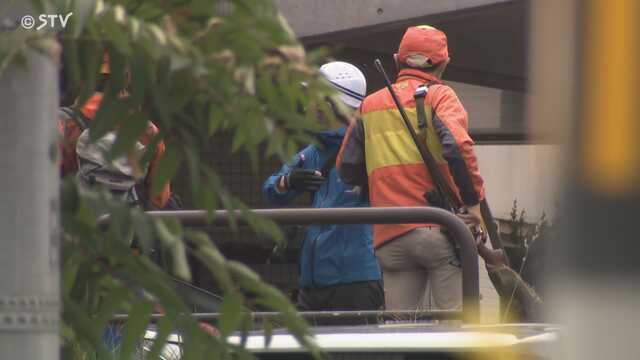A bear appeared and remained near an elderly care facility in Teine-Kaneyama, Teine Ward, Sapporo. The bear was eliminated after a hunter fired shots.
According to reports, around 11:15 AM, a hunter fired one shot from the balcony of the elderly care facility, hitting the bear.
Subsequently, before 1:00 PM, the hunter fired second and third shots in the bushes, eliminating one bear.
The elimination was conducted under the Wildlife Protection and Management Law, not under police emergency shooting protocols or municipal emergency hunting measures.
Bear sightings had been confirmed for four consecutive days at this location, maintaining a tense situation.
Since walnut trees are located near this elderly care facility and additional bears may still be present, Sapporo City has installed electric fences in the surrounding area to strengthen precautions.
Teine-Kaneyama
Teine-Kaneyama is a historic mountain area located in Sapporo, Japan, known for its significant role during the Edo period as a source of iron sand for steel production. It was part of the broader development of Hokkaido, with its resources supporting local industry and settlement. Today, it is recognized as a cultural heritage site, reflecting the region’s industrial past and natural landscape.
Teine Ward
Teine Ward is a residential district in western Sapporo, Japan, known for its natural scenery and outdoor recreation centered around Mount Teine. Historically, the area developed from small agricultural villages and gained prominence after the 1972 Sapporo Winter Olympics, where the Mount Teine ski resort hosted the alpine skiing events. Today, it offers a blend of suburban living with easy access to both mountain activities and the urban center of Sapporo.
Sapporo
Sapporo is the capital of Hokkaido, Japan’s northernmost prefecture, which was developed in the late 19th century during the Meiji period as a modern planned city. It is internationally famous for its annual Sapporo Snow Festival, its brewing heritage (home of Sapporo Beer), and for having hosted the 1972 Winter Olympics.
Wildlife Protection and Management Law
The Wildlife Protection and Management Law is not a physical place or cultural site, but rather a Japanese environmental regulation established in 2002. This law replaced earlier wildlife legislation to provide comprehensive management of hunting and protected species, balancing conservation with human-wildlife conflict mitigation. It represents Japan’s modern approach to biodiversity preservation through legal frameworks rather than physical landmarks.






